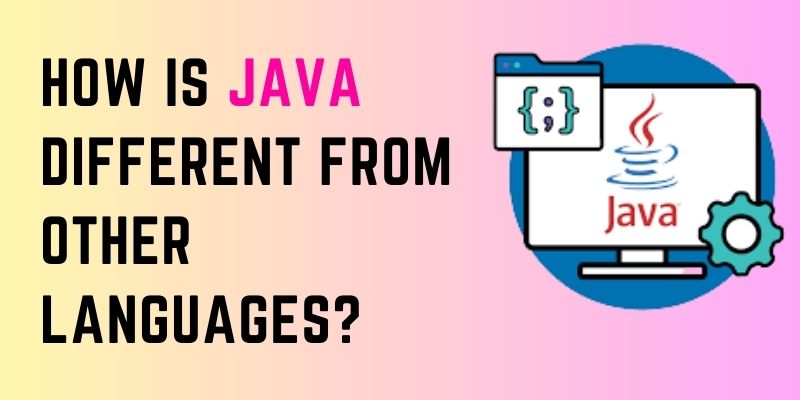Java’s unique method of code execution sets it apart from all other programming languages. In contrast to compiled languages like C++, Java is compiled to bytecode, which may be run on all supported devices with a Java Virtual Machine (JVM). Contrarily, because C++ is directly generated into machine code, it can only be used on the same platform on which it was created. If you want to know How is Java Different from Other Languages? Join Java Course in Chennai at FITA Academy for the best coaching from industrial experts.
The extensive Java Class Library is another distinctive aspect (JCL). Java needs to be compared to each language separately in order to adequately respond to this topic. In the section that follows, Java is contrasted with six other popular programming languages now in use. C, C#, C++, Javascript, Ruby, and Python are a few of them.
How Java is Platform Indepentent?
Platform-specific programming languages are usual. This language’s code cannot be run on numerous computers without being altered. You must modify your code if you wish to run it on a different computer.
Code written in C or C++, for instance, cannot execute on Unix since the two operating systems are different. Java is platform independent to JVM, but C and C++ code is machine dependant.
The platform-specific Java Virtual Machine is known as JVM. Every operating system has a unique JVM, and each JVM has a different Java implementation depending on the operating system. The fundamental component of Java, or JVM, transforms byte code into machine code from an input.
The compiler creates the byte code (Javasi). When the Java source code is delivered to the JVM, the Java compiler compiles it and turns it into byte code. Get the best Java Training with certified Trainers at FITA Academy. Here, we offer the training with the recently updated syllabus in Java Online Course.
Why is Java Popular?
Java is an advanced, object-oriented programming language, as is well known. Platform independence is Java’s most significant characteristic. This feature helps Java become highly popular.
Platform – A platform is an environment that allows for programme execution. Software, hardware, or combined may make up a platform.
- Hardware platforms are any actual physical devices that are utilised to run programmes.
- Software is a collection of instructions created for a specific task and put on a physical system.
Java code is said to be platform neutral because it is not machine dependent. Basically, operating system is referred to here as machine term.
How has Java influenced other Languages?
Before Java, it was unheard of to be able to develop a programme, compile it, and run it on any computer. Nevertheless, Java altered the rules. This is how Java differs from C++, which it replaced. Well, since then, Java has had a significant impact on the development of other platform-independent languages. For a while to come, Java will continue to be the best programming language, if not the top contender. Placement guidance is provided for the applicants who completed the Java Training in Coimbatore.
